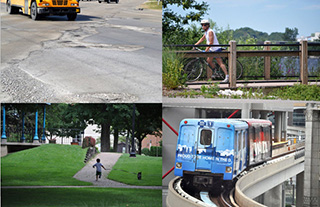This afternoon House Bill 5397 was sent to the governor after unanimously passing the Senate. This bill creating the Municipal Utility Residential Clean Energy Program Act and would enable municipalities that own electric utilities to establish a program to help provide financing to residential property owners for energy efficiency projects. This is modeled after the PACE Act.
This legislation passed the full House prior to the legislative recess in June on a 108 to 2 vote.
This is an idea that was brought to Rep. Joe Haveman’s attention by the city of Holland who would like the opportunity to create a program such as this. The League has supportive this bill throughout the process and very pleased that it has been sent to the Governor.
Samantha Harkins is the Director of State Affairs for the League handling municipal finance issues. She can be reached at sharkins@mml.org or 517-908-0306.


